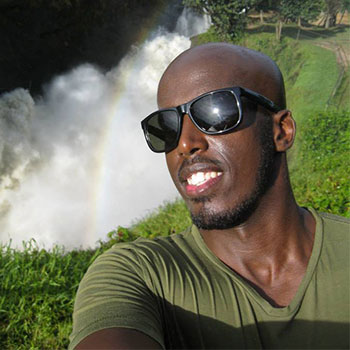We use cookies on this site to enhance your experience.
By selecting “Accept” and continuing to use this website, you consent to the use of cookies.

Nov. 5, 2014
By: Ahmed Ali
The Refugee Law Project (RLP) is a stand alone project that works with the School of Law at the University of Mekerere to address the legal, psychosocial and gender issues of forced migrants in Uganda. Forced migrants are described as those who have been forcibly removed from their homes to flee psychological, physically and emotional prosecution. RLP employs a diverse team of lawyers, social workers, psychologists and videographers to help ensure refugees, asylum-seekers, deportees and internally displaced persons enjoy their fundamental rights, as outlined in international laws and the Constitution of Uganda. RLP pursues a multi-disciplinary approach to peace promotion directly through the provision of legal and psychosocial assistance; and indirectly through research and advocacy, as well as education and training programmes. The agency is divided into four departments; the Mental Health and Psychosocial Well-being (MHPW) Programme provides individual, group and family counselling, community outreach, capacity building initiatives and conducts research and advocacy on emerging psychosocial and mental health issues; the Gender and Sexuality (GS) Program works to address practical and policy implications that deal with gender issues, such as sexual gender based violence, gender identities, and sexual reproduction; the Access to Justice (AJ) program provides free legal assistance to forced migrants, training on human rights to community stakeholders and conducts research to find solutions to national policy gaps; and the Conflict, Governance and Justice (CGJ) program is a combination of action-oriented research, policy advocacy and early warning interventions. All these programs work together to promote the dignity and well-being of forced migrants.
Currently, RLP is suspended from providing any direct service to forced migrants due to a government imposed suspension. This suspension was put in place last March, shortly after the Anti- Homosexuality Bill was passed in parliament. Sadly, the government has alleged that RLP has been promoting same-sex relationships and has used the legislation to prevent RLP from working with forced migrants. However, the bill has been annulled since not enough lawmakers were present to vote in August and now the agency is working with the government to lift the suspension. In the meantime, RLP has been working to conduct research and advocacy on current issues but this has been severely limited as the voices of those affected can not been fully heard.
Presently, I’m working with the MHPW and CGJ to conduct a program evaluation of a suicide survivor support group and the livelihood program they have initiated. I hope to examine the connection between mental health and the capacity-building aspects of these survivors. Specifically, I would like to explore the process of empowerment and community capacity-building that enable individuals to lead healthy and sustainable lifestyles. The key idea is exploring how the psychological wellbeing of the person is necessary for the individual to have the ability to meaningfully contribute to society, whether it be socially or economically. Another project that I will be working with is called Conflict Watch which engages multiple layers of stakeholders in the pursuit of disseminating information of potential conflicts in Northern Uganda to the public. The project will be to critically analyze current trends in policy towards IDP’s, local/regional/national conflict drivers, and to create a newsletter article to create awareness on the issues. The conflict watch allows for an inclusive dialogue with community stakeholders that incorporate the voices of internally displaced persons.